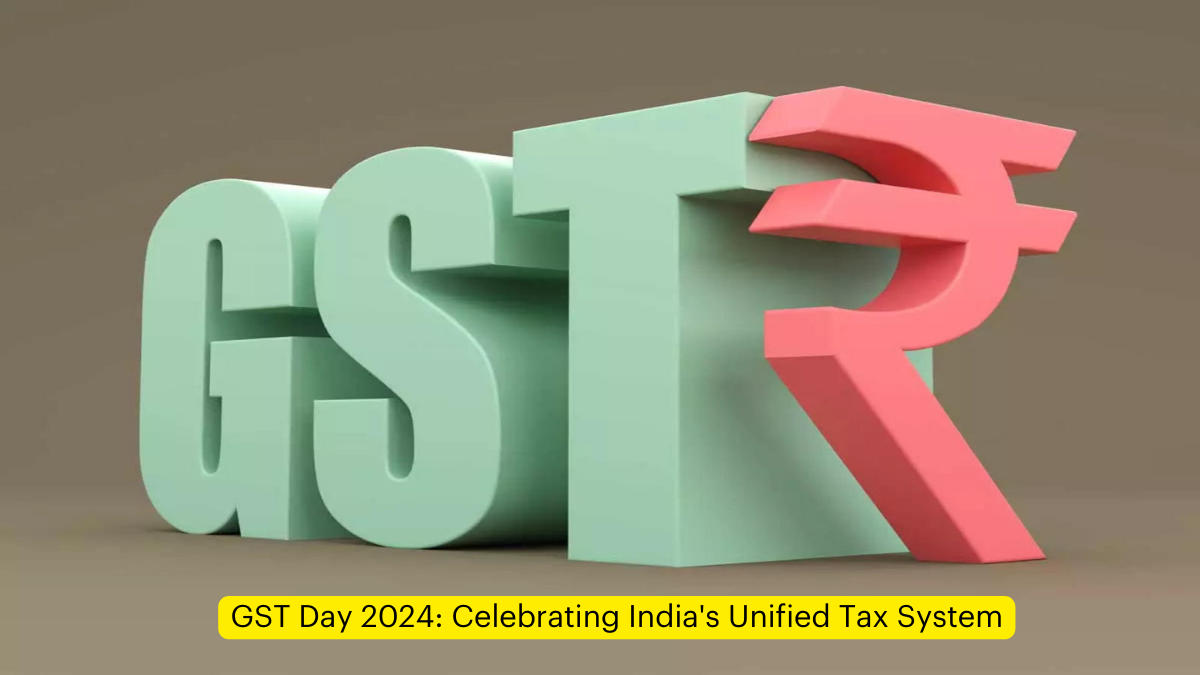Goods and Services Tax (GST) Day is an important annual event in India’s economic calendar. This day commemorates the implementation of a transformative tax system that revolutionized the country’s fiscal landscape. As we approach GST Day 2024, let’s explore its history, significance, and impact on India’s economy.
Date and Background
GST Day is observed on July 1 each year. The upcoming celebration in 2024 will mark the seventh anniversary of the GST system in India. This comprehensive indirect tax was introduced to simplify the complex web of taxes previously levied by central and state governments.
Historical Context
Origins of GST in India
The concept of GST was first introduced in India in the early 2000s. The Kelkar Task Force, a dedicated team of experts, proposed a comprehensive indirect tax system to replace the existing framework that was hindering the country’s economic growth.
Legislative Journey
In August 2016, a significant milestone was achieved when Parliament enacted the Constitution (101st Amendment) Act. This legislation authorized the central government to charge and collect GST. Subsequently, the government established the GST Council, comprising finance ministers from central and state governments, to oversee the implementation process.
Implementation
After numerous council meetings to decide on rates, exemptions, and concerns, GST was finally implemented on July 1, 2017. The launch event took place at midnight in the Parliament’s central hall, marking a historic moment in India’s economic reforms.
Significance of GST Day
GST Day holds immense importance for India’s taxation system. It celebrates the successful implementation of a regime that has significantly impacted the Indian economy. Some key aspects of its significance include:
- Streamlined Taxation: GST replaced multiple indirect taxes, simplifying the overall tax structure.
- Unified Market: It established a single market for seamless interstate trade.
- Transparency: The new system brought greater clarity and efficiency to tax collection.
- Economic Growth: By reducing tax barriers, GST has contributed to accelerated economic growth.
Impact on the Indian Economy
The introduction of GST has had far-reaching effects on various aspects of the Indian economy:
Business Operations
- Simplified tax structure for businesses
- Elimination of cascading taxes
- Reduced compliance burden
Consumer Benefits
- Potential reduction in prices of goods and services
- Unified tax rates across the country
Government Revenue
- Improved tax collection efficiency
- Better monitoring and prevention of tax evasion
Interesting Facts about GST in India
- Celebrity Ambassador: Bollywood actor Amitabh Bachchan serves as the brand ambassador for GST in India.
- Global Inspiration: India’s GST system was modeled after the Canadian GST system.
- Tax Slabs: The Indian GST system has five tax slabs: 0%, 5%, 12%, 18%, and 28%.
- Father of GST: Former Prime Minister Atal Bihari Vajpayee is often referred to as the father of GST in India.
- Long Journey: While GST was first proposed in 2000, it took over 17 years to implement.
- Exemptions: Certain essential commodities like fresh fruits, vegetables, and unbranded flour are exempt from GST.
- Revenue Sharing: GST revenue is split between the central and state governments.
- Simplified Registration: The system eliminates the need for separate state-level tax registrations.
Celebrating GST Day 2024
As India approaches the seventh anniversary of GST implementation, various events and activities are expected to take place:
- Government-organized seminars and workshops
- Public awareness campaigns
- Recognition of businesses compliant with GST norms
- Discussions on further improvements to the GST system



 World Day for Audiovisual Heritage 2024,...
World Day for Audiovisual Heritage 2024,...
 International Dwarfism Awareness Day 202...
International Dwarfism Awareness Day 202...
 Commemoration of Sardar Patel’s 150th ...
Commemoration of Sardar Patel’s 150th ...

